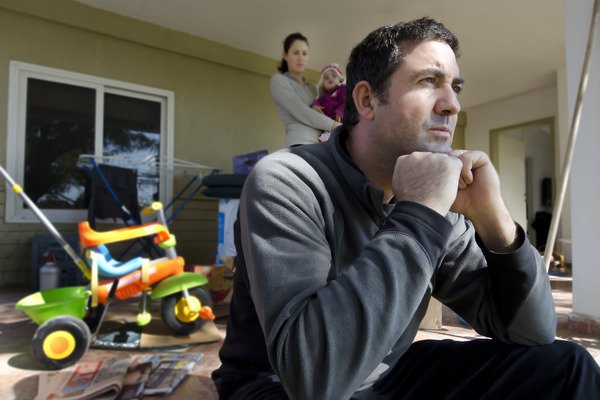Sadness, anger and fear are feelings that lead us to look for someone to blame for a problem. But being mature means stopping blaming others, right?

A proud personality You will have trouble recognizing your mistakes by considering himself superior to others and will always blame others. But not only people with this type of personality do not want to question themselves, for fear of the consequences or to protect themselves by blaming others. Why be responsible while others can be? What lies behind never wanting to take responsibility? Why are these people victimizing themselves and not feeling responsible?
When we are children, we are protected by our parents, they are responsible for us. They protect us and take care of us, but as we grow we learn that comfort and the security They are our main guarantors of our freedom. By fully assuming our choices, our decisions, we lead our own lives as we see fit. We become the actor of our own life It all starts with finding a job to support yourself, and then we learn to relate to others as we see fit and take care of our mental health. We learn little by little, at our own pace, to take responsibility.
This is where everything is played, and you have to score the difference between growing and maturing If time passes for everyone, we grow inexorably, but the way we handle this responsibility over our lives determines our maturity. Taking responsibility for what is happening to us is that maturity.
Why blame others?
If it is not by freeing the guilt of one from the guilt of the other, we use different strategies to avoid mistakes. But why?
- Being guilty is become fragile in the eyes of others and ourselves s. Questioning yourself is difficult, you get trapped in these moments and our image of ourselves is altered. We must take responsibility, but can we be disappointed? We then prefer that it is our neighbor’s fault to save us from painful thoughts and poor self-esteem.
- It is also possible that we have fear of consequences, whether it is losing the esteem or love of a person, or finding ourselves alone. We hate feeling rejected, flawed or unpleasant. Therefore, everyone prefers to anticipate in case of fault to avoid the penalty, and the excuses we often find are numerous.
- There is also another unconscious defense mechanism through projection This technique is equivalent to blaming the other for what belongs to us, but that we refuse to admit, whether it is a trait, a feeling, or a strange fact. Then we project onto the other what we don’t like.
To overcome these different conscious or unconscious strategies, we must accept their vulnerability Nobody is perfect and we are all vulnerable, with our flaws and mistakes. To admit them is to become stronger and lighter. One must allow oneself to feel them so as not to judge and listen to oneself. Ask yourself what will happen if you consider yourself guilty and it will help you better understand your internal scenario.

What does it mean to mature?
Growing and maturing is learning, without a doubt You cannot learn without making mistakes, since for mathematics, French, you have to train and practice to improve. Therefore, the learning process presupposes that one makes mistakes by going through a complex process of reflection and analysis of the facts. And this is where we tend to point out external reasons for our mistakes. Our mind will look for the culprits.
As proof, when we come across an object in a room, we wonder what the hell it’s doing there. Then we criticize directly the person who could put it here or directly the object in question. This process is natural and is generated by frustration But sometimes the obstacle that stands in our way is more important than an object. What happens when you disagree with a friend? You don’t pass an exam? That you get a fine? When do you have communication problems in your relationship? And the examples are numerous…

When we don’t think, we tend to think that this is the other problem because it is presented to us. Your emotions dominate you at that moment and you look for a culprit who is on your mind. Then we reject the fault in others, in the circumstances or in yourself. For! Stop for two seconds and ask yourself what it really means to find a culprit Once the culprit is found, what does he bring you? When we focus on accusing others or blaming ourselves, we focus on negative attitudes and emotions such as sadness, anger, frustration or resentment, but we don’t move at all. On the contrary, it makes us unhappy.
If you rather work on the solution, look for how to change the situation, you will understand very quickly that beyond wasting time looking for the culprit, you will see that it is possible to resolve the situation and work on it. she.
It’s just that you mature, go beyond emotions to try to understand where the error is coming from and how to fix it or improve it for next time. When you look for a culprit next time, think quickly about turning the page to let the negative emotions arrive unresolved, and look for solutions instead of culprits. This will allow you to achieve new goals and leave those negative emotions behind.
The solution is in you, and no one else can change it. Let others correct you, put aside your pride and be honest with yourself and then with others. Dare to say “I was wrong,” and this sentence will seem easier and easier to say over time.
Having said that, No one is completely responsible for what happens to them And responsibilities are sometimes shared. In this case, rather try to understand, find solutions, rather than fight to find out who is the most guilty.








